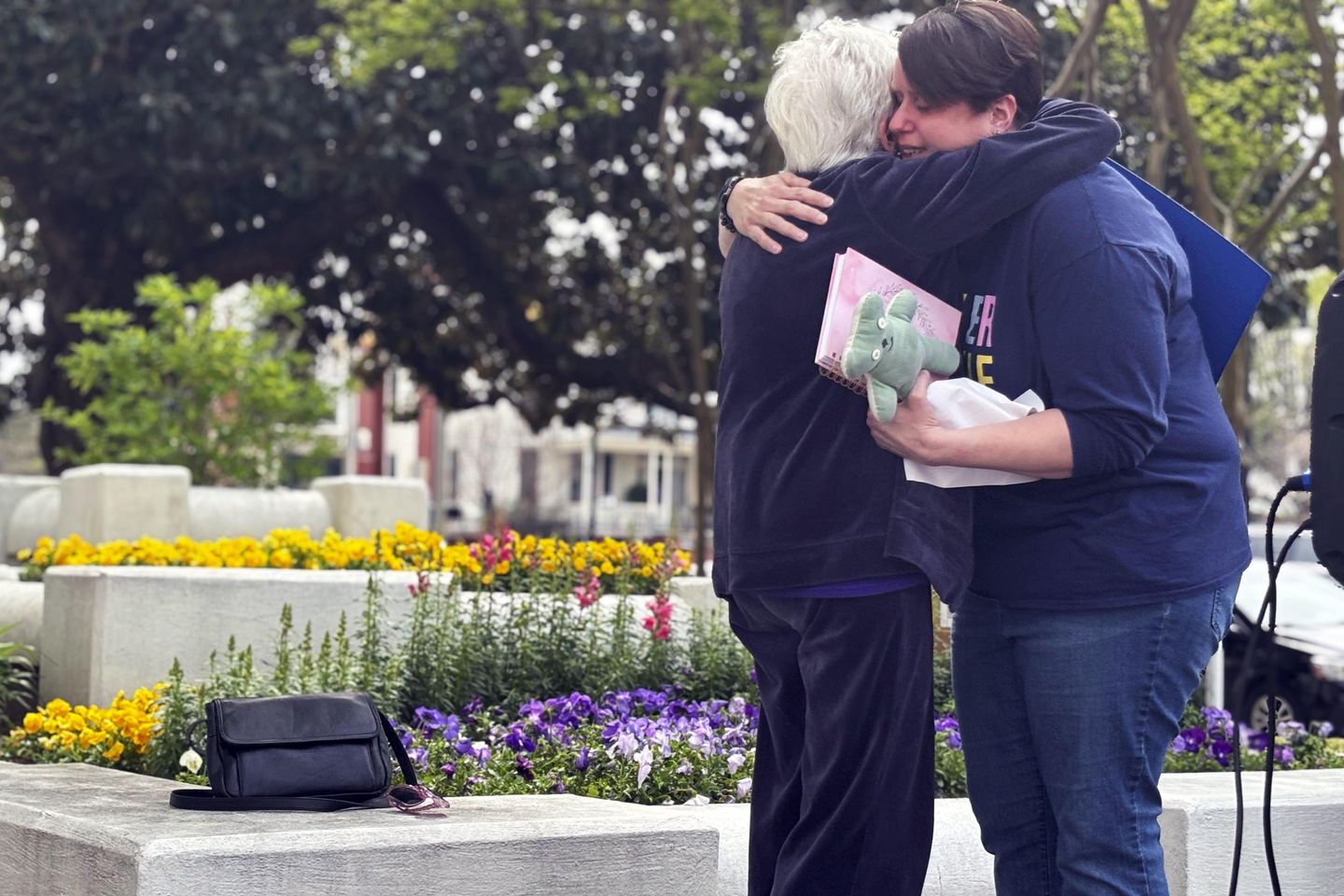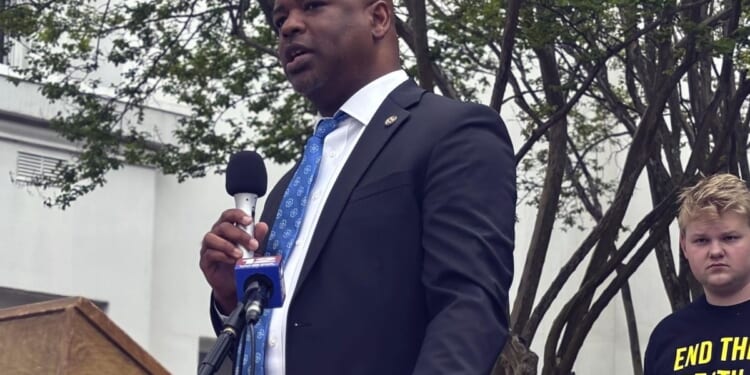
MONTGOMERY, Ala. — Jurors in 1994 recommended by a 9-3 vote that Rocky Myers be spared the death penalty and serve life in prison. A judge sentenced him to die anyway.
Myers is now one of nearly three dozen inmates on Alabama’s death row who were placed there under a now-abolished system that allowed judges to override a jury’s recommendation in death penalty cases.
Activists held a rally Thursday outside the Alabama Statehouse urging lawmakers to make the judicial override ban retroactive and allow those inmates an opportunity to be resentenced.
“Justice demands us to afford those individuals who are still on death row by judicial override the opportunity to be resentenced,” Rep. Chris England, the bill sponsor, said.
Alabama in 2017 became the last state to abandon the practice of allowing judges to override a jury’s sentence recommendation in death penalty cases. The change was not retroactive. Alison Mollman, senior legal counsel of the American Civil Liberties Union of Alabama, said there are 33 people on Alabama’s death row who were sentenced to death by a judge even though a jury had recommended life imprisonment.
The bill is before the House Judiciary Committee. It has yet to receive a vote with 13 meeting days remaining in the legislative session.
A telephone message to a victims’ advocacy group left late Thursday afternoon about the bill was not immediately returned.
Alabama this year became the first state to carry out an execution with nitrogen gas when it executed Kenneth Smith. Smith was one of two men convicted and sentenced to die in the 1988 murder-for-hire slaying of Elizabeth Sennett.
Smith’s initial 1989 conviction, where a jury had recommended a death sentence, was overturned on appeal. He was retried and convicted again in 1996. The jury that time recommended a life sentence by a vote of 11-1, but a judge overrode the recommendation and sentenced Smith to death.
“Eleven people on his jury said he should still be here today. Eleven. One judge was all it took to override that decision,” Smith’s wife, Deanna Smith, said.
After the rally Thursday, supporters carried a petition to Alabama Gov. Kay Ivey’s office asking her to grant clemency to Myers.
Myers was convicted in the 1991 stabbing death of his neighbor Ludie Mae Tucker. Mae Puckett, a juror at Myers‘ trial, told a legislative committee last year that she and several other jurors had doubts about his guilt but feared if the case ended in a mistrial, another jury would sentence Myers to death. Puckett said she learned later that the judge had overridden their recommendation.
“I never for a minute thought he was guilty,” Puckett said last year.
Before she died, Tucker identified her attacker as a short, stocky Black man. LeAndrew Hood, the son of Myers, said they knew Tucker and would buy ice from her. Hood said he was always struck by the fact that Tucker gave a description instead of saying she was attacked by her neighbor.
“She knew us. … If she had enough strength to say it was a short, stocky Black man, why didn’t she just say it was the man across the street?” Hood said.












